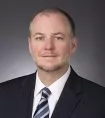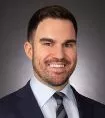- within Insolvency/Bankruptcy/Re-Structuring topic(s)
The Eighth Circuit Court of Appeals recently tossed a $5.5 million jury verdict finding that a physician violated the False Claims Act ("FCA") by submitting claims for items and services ordered subsequent to a violation of the Federal health care program anti-kickback statute ("AKS"). According to the appellate court, the trial court's jury instruction "brushed aside causation" and "misinterpreted" a 2010 amendment to the AKS.
As part of the Affordable Care Act, Congress in 2010 amended the AKS to expressly provide that a claim "resulting from" an AKS violation constitutes a false or fraudulent claim for purposes of the FCA. See 42 U.S.C. 1320a-7b(g). However, Congress did not define the phrase "resulting from," leading courts to form divergent opinions as to whether a causal link between the kickback violation and the false claim is necessary and, if so, as to the nature of that causal link.
The Eight Circuit concluded that, when a plaintiff seeks to establish the falsity of a claim "resulting from" a violation of the AKS, the plaintiff must prove that a defendant "would not have included particular 'items or services' [in the claim] but for the illegal kickbacks" (emphasis added). United States v. Midwest Neurosurgeons, LLC, et. al, No. 20-2445, 14 (8th Cir. 2022). The Court said that its ruling is narrow and does not imply that every case arising under the FCA requires a showing of but-for causation, only FCA cases wherein the claim is allegedly 'false' because it 'results from' an AKS violation. See id.
The Court concluded that "... given the government's sole theory at trial hinged on the 2010 amendment [to the AKS], the district court never instructed the jury on but-for causation, and there is no telling what the jury would have done if it had." Id.
The content of this article is intended to provide a general guide to the subject matter. Specialist advice should be sought about your specific circumstances.


